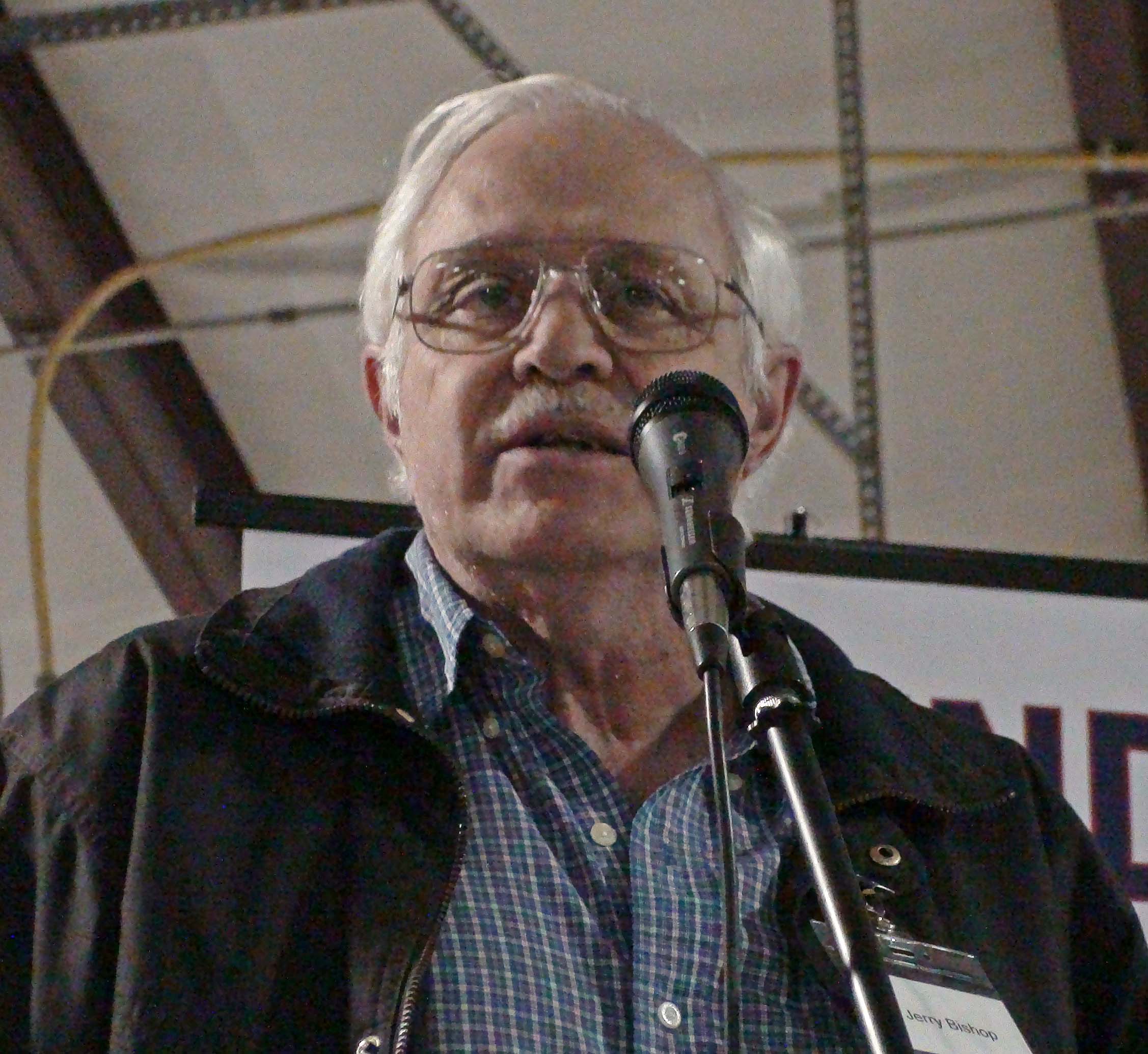The County Assembly will begin seating delegates from precinct caucuses in about 45 minutes. The room is set–the volunteers have done a nice job, candidates are present and have met with the party chairman, all systems are ready. See twitter.com/broimp for tweets on sequence of events and vote outcomes. I tried to get pics of all candidates. See below. As for video, most of the speeches were very short and not overly substantive. Therefore I plan to publish video coverage only for segments that contain candidates not previously covered by this blog, and for a couple of extraordinary moments. [Read more…]
2010 ERC County Assembly
Republican County Assembly, Saturday, April 10, 11:00 a.m. to 5:00 p.m., Kiowa Middle School Gym.
The Elbert County Republican Central Committee Bylaws, Article II. Purpose, Section 2. Primary Purpose, “Recognizing the fundamental principals of the Republican Party…..the primary purpose of this organization shall be……to encourage all citizens to participate in the democratic process and in all phases of government; and to facilitate the free flow of ideas as they relate to the election process and all phases of government.”
Note: You must be officially recognized by the assembly to publicly address the county assembly. This is not a public forum, however, to my knowledge there have never been any restrictions against the public observing the proceedings. Any members of the public attending for the purpose of observation should exercise care to in no way interfere with the conduct of the delegates and the business of the assembly.
Next ECR Breakfast:
4/3/10 ECR Speeches
Candidate Speeches (contested races)
U.S. Congress
Colorado Supreme Court Judge Attrition
- Matt Arnold of Clear The Bench Colorado Part 1, Part 2
Sheriff
- Bob Sexton
- Shayne Heap
- Brian Weiss Part 1, Part 2
- Jack Knous
Commissioner
Assessor
Treasurer
Clerk
Note: Experiences with the caucus system and the county assembly have given ample grounds to regard the caucus system in Elbert County as broken. Hopefully, through video coverage of candidate speeches, the public–not just delegates–will see the relative qualities of the various candidates aspiring to move forward in the electoral process at the county assembly next week, and everyone will have a means to assess the quality of representation the delegates elected at county caucuses provide to Republicans. Of course, we’ll have to see how the horse trading at the county assembly shakes out in order to fully assess delegate performance, but times were such that the process desperately needed transparency, and that’s what motivates this publication. [Read more…]
April ECR breakfast
ECR Breakfast 3/13/10
——————————————————————————————–
Speeches
State Representative Cindy Acree
Candidate for Secretary of State Scott Gessler
Candidate for U.S. Senate Tom Wiens
Candidate for Governor Scott McInnis
Candidate for Sheriff Brian Wiess
Candidate for U.S. Senate Ken Buck
Note: After his speech I privately asked Candidate Buck about the strong advertising against Norton that recently began and he said he wasn’t aware of it. I don’t know whether the report of the Declaration Alliance’s support of Buck is true, however, the negative ad campaign exists on both TV and radio and the candidate’s response to my question did not make sense to me.
cartoons have layers
divide and conquer
Rich Galen – Mullings
In Texas on Tuesday a little known woman named Debra Medina ran as the Tea Party candidate and got nearly 19 percent of the vote in the GOP primary for Governor. Sen. Kay Bailey Hutchison got about 30 percent and Gov. Rick Perry got 51 percent meaning Medina was far closer to Hutchison than Hutchison was to Perry. In this era of euphoria for the GOP, this result could well portend a huge problem next November.
Here’s why. Medina got about a fifth of the vote in a GOP primary. She would probably have gotten a far smaller percentage in a general election, but that’s where I’m going with this. Primary elections and other nominating processes will be pretty much done by August. A few states go into September, but not many. So, Republican and Democrat nominees will be chosen and running against each other by, for the most part, late summer. In Congressional District after Congressional District Democrats are fearing for their political lives in the face of an Obama job approval which is stuck at slightly below 50 percent. Running head-to-head against the Republican nominee is going to be a steep hill to climb – Washington experience does not appear to be a big plus this year. Most states have a process for an independent candidate to get on the ballot. It usually involves getting some number of signatures from some segment of the population in each county or some similar formula. Someone is going to figure out that being the Tea Party candidate can get you a significant percentage of the vote, if you can get on the ballot.
Debra Medina got about the same percentage of the vote as Ross Perot got in the Presidential election of 1992. Perot didn’t win any electoral votes, but he got enough popular votes to draw support away from George H.W. Bush and allowed Bill Clinton to win the state. Another example. If Ralph Nader hadn’t been on the Florida ballot no recount would have been necessary. Al Gore would have won the state fairly handily and would have been the 43rd President of the United States. If Tea Party candidates can get on the ballot in close districts, they can easily do the same thing: Siphon votes away from the GOP candidate and throw the district to the Democrat. Why would they do this? To demand that Republican candidates toe the Tea Party Line – or else. In most states independents can gain ballot access well after the primary voting period, so they can make the threat stick: Come out against an ever-encroaching Federal government or the Tea Party candidate will get on the ballot and you can go back to your day job.
If I were advising the Democratic Congressional Campaign Committee, I would tell them to set aside a fund of money to teach Tea Party candidates how to gain ballot access in the 30 – 40 Districts which the Ds think are in most peril. Republican challengers in Democrat districts can preempt that plot by claiming the Tea Party mantle starting, oh, tomorrow would be just about right. Republican incumbents won’t lose to Tea Party candidates. They might if they were running in a GOP primary in the Northeast, but there aren’t very many Republican incumbents in that region so there is not much low hanging fruit. The power of the Tea Baggers can be best used in weak Democratic districts where they can threaten to get on the ballot and destroy Republican chances to take back control of the U.S. House. That is a dangerous storm bearing down on GOP hopes for November.
Lincoln Day Dinner
Elbert County Republican Lincoln Day Dinner, Feb. 20, 2010
Videos:
Congressman Mike Coffman
Jon Caldara – Boulder Is An Odd Town
Jon Caldara – The Republican Brand
Jon Caldara – Compelled Health Care
Jon Caldara – Losing Parker
————————————————————————————————
————————————————————————————————
Notice:
Elbert County Young Republicans will have an organizational meeting at their new office above the car wash in Kiowa, Monday, March 29th, 2010. Contact Linda Wyer at lwyer95@yahoo.com
Republicans v. Conservatives
We went to our local Lincoln Day dinner last night and got a full dose of Republican politics. It’s a lively time for the party with fresh candidates popping out of the woodwork everywhere you look. A lot of tea party energy was in evidence, however I sensed a retrenchment on the part of the GOP establishment. If they think they know best how to defeat the left, they “have some ‘splainin’ to do” about how their past leadership brought us a Democrat state government and two Democrat senators. Tea party candidates have no prospects as a third party, however it’s unreasonable to expect GOP guardians to just morph into constitutional conservatives and incorporate tea party fundamentals. Conservative principles have been on the table all along and they weren’t sufficiently compelling to the GOP the last time they had the majority. We will get Republicans elected next Fall because the left have scared the crap out of mainstream America with their Weather Underground/Ayers/Alinsky/Muslim Brotherhood/socialist revolution. But I worry that the self-interest of the GOP old guard will come before the “self-evident truths we hold.” Many battles lie ahead.
the system
The system works. It wouldn’t be the system long enough to become the system if it didn’t. That said, the system exists in a state of corrupt flux. As any human expression built with human fallibility and imperfect knowledge, only divine intervention could enable humans to create a more perfect existence than themselves. So we defer to our flawed nature, soldier on, and hope for the best. That’s the system.
Mike Rosen had a caller the other morning who wouldn’t accept Rosen’s point that political party trumps person. Pete Boyles would have agreed with the caller. He too votes for the person over the party. 2009 went down as a disaster for one party leftist government–an abject proof of Rosen’s thesis.
The system involves a lot more than casting votes in November. Our civic conscience and prescriptions for ethical society hinge on education, accurate perception, a true knowledge of the history of what has worked and what has not, and humility. Too many use their vote as a mirror for preening their self image. They’re the ones tuning up their self esteem with congratulatory back slapping and snippets of sound-bite love for the downtrodden. Notwithstanding civic duty, the system accepts all motivations including the most base and the most naive.
The left’s approach holds that the good is objectively obvious and that everyone should be required to contribute to it. Their systemic safety net sounds charitable, but in practice leads to unchecked corruption, the denial of free will, the prevention of moral choice, and a worsening of the human condition. While the good may be objectively obvious to many people, manifesting the good by force always makes things worse.
The right holds that what is good can only be individually and voluntarily created. They know that coercion nullifies moral choice–that it is the act of choosing the good over the bad that makes something good.
The left avoid this topic like the plague because it reminds them of their pro-choice position where they insist on preserving the legal license to choose to kill babies–which they think is a good thing. And so go the pitfalls of their relative morality.
Anyway, the right’s approach has in fact produced the greatest good for the greatest number of people whenever it has been the controlling philosophy. The left continues to attack it for want of a systemic safety net, even though the left have repeatedly demonstrated that systemic safety nets don’t work.
At the end of the day, the system that most empowers individuals to create their own good has the endorsement of the weight of history. George Will has observed in many columns that the brilliance of the American system lies in its’ ability to produce governmental gridlock. And who wouldn’t want to have the 800 lb. gorilla in the living room securely shackled?
Individual empowerment by default through the frustration of systemic government coercion may not be pretty, but it’s the system that works best for us. The Founders designed a self-limiting American government in order to protect our freedom to live and pursue happiness. They knew that only free people so engaged could build a great nation.
Since the founding of America, however, huge national mistakes harming millions of people have been repeatedly committed in the name of social progress in our country, and in many nations throughout the world. It’s time for the left to face the facts that it (a) has no monopoly on good intentions and that (b) good intentions do not justify forcing progressive programs on the country.
One definition of insanity is to keep doing the same thing and expect a different result. The only thing progressivism (and it’s close cousins socialism, fascism and communism) ever delivered is destruction to the fabric of their societies. We can no longer afford to stand by while America consumes itself in the fire of progressive passion. The failed progressive experiment must end and we can use the system to do it.
Don’t wait for November to get into the system. By then, 99% of the political season’s governmental product will be formed. The American system is a continuum of free speech, critical analysis, study of history, and the endless task of trying to avoid repeating our mistakes. I believe the system can be operated so that we quit making the big progressive national mistakes that harm millions of people. We must end the experiments in the name of social progress. We are human beings, not lab rats for entertaining progressive social scientists.
2-13-10 Repub Breakfast
Speakers (click to enlarge)
—————————————————————————————-
YouTube videos:
Scott Wills reporting on candidates for county offices in 2010
Hope Goetz on the state of the county
PJ Trostel breakfast sponsor and candidate
Rick Stone on Republican strategy
Jerry Bishop on getting back to the Constitution
Mike Holler:
The constitutional crisis caused by progressive Democrats and progressive Republicans
not the party of no
GOP Idea Man Charts Course For Solvency
By GEORGE F. WILL
Posted 02/05/2010 06:25 PM ET
In 2013, when President Mitch Daniels, former Indiana governor, is counting his blessings, at the top of his list will be the name of his vice president: Paul Ryan. The former congressman from Wisconsin will have come to office with ideas for steering the federal government to solvency.
Not that Daniels has ever been bereft of ideas. Under him, Indiana property taxes have been cut 30% and for the first time, Standard & Poor’s has raised the state’s credit rating to AAA.
But in January 2010, Ryan released an updated version of his “Roadmap for America’s Future,” a cure for the most completely predictable major problem that has ever afflicted America.
Some calamities — the 1929 stock market crash, Pearl Harbor, 9/11 — have come like summer lightning, as bolts from the blue. The looming crisis of America’s Ponzi entitlement structure is different. Driven by the demographics of an aging population, its causes, timing and scope are known.
Funding entitlements — especially medical care and pensions for the elderly — requires reinvigorating the economy. Ryan’s map connects three destinations: economic vitality, diminished public debt, and health and retirement security.
To make the economy — on which all else hinges — hum, Ryan proposes tax reform. Masochists would be permitted to continue paying income taxes under the current system. Others could use a radically simplified code, filing a form that fits on a postcard.
It would have just two rates: 10% on incomes up to $100,000 for joint filers and $50,000 for single filers; 25% on higher incomes. There would be no deductions, credits or exclusions, other than the health care tax credit (see below).
Today’s tax system was shaped by sadists who were trying to be nice: Every wrinkle in the code was put there to benefit this or that interest. Since the 1986 tax simplification, the code has been recomplicated more than 14,000 times — more than once a day.
At the 2004 Republican convention, thunderous applause greeted George W. Bush’s statement that the code is “a complicated mess” and a “drag on our economy” and his promise to “reform and simplify” it. But his next paragraphs proposed more complications to incentivize this and that behavior for the greater good.
Ryan would eliminate taxes on interest, capital gains, dividends and death. The corporate income tax, the world’s second highest, would be replaced by an 8.5% business consumption tax. Because this would be about half the average tax burden that other nations place on corporations, U.S. companies would instantly become more competitive — and more able and eager to hire.
Medicare and Social Security would be preserved for those currently receiving benefits, or becoming eligible in the next 10 years (those 55 and older today). Both programs would be made permanently solvent.
Universal access to affordable health care would be guaranteed by refundable tax credits ($2,300 for individuals, $5,700 for families) for purchasing portable coverage in any state. As persons under 55 became Medicare-eligible, they would receive payments averaging $11,000 a year, indexed to inflation and pegged to income, with low-income people receiving more support.
Ryan’s plan would fund medical savings accounts from which low-income people would pay minor out-of-pocket medical expenses. All Americans, regardless of income, would be allowed to establish MSAs — tax-preferred accounts for paying such expenses.
Ryan’s plan would allow workers under 55 the choice of investing more than one-third of their current Social Security taxes in personal retirement accounts similar to the Thrift Savings Plan long available to, and immensely popular with, federal employees. This investment would be inheritable property, guaranteeing that individuals will never lose the ability to dispose every dollar they put into these accounts.
Ryan would raise the retirement age. If, when Congress created Social Security in 1935, it had indexed the retirement age (then 65) to life expectancy, today the age would be in the mid-70s. The system was never intended to do what it is doing — subsidizing retirements that extend from one-third to one-half of retirees’ adult lives.
Compare Ryan’s lucid map to the Democrats’ impenetrable labyrinth of health care legislation. Republicans are frequently criticized as “the party of no.” But because most new ideas are injurious, rejection is an important function in politics. It is, however, insufficient.
Fortunately, Ryan, assisted by Republican representatives Devin Nunes of California and Jeb Hensarling of Texas, has become a think tank, refuting the idea that Republicans lack ideas.
http://www.investors.com/NewsAndAnalysis/ArticlePrint.aspx?id=520346
Can caucus-o-crats become conservatives?
The tea party movement led the way back to fundamental conservative principles, a trend now shown to have legs. Will the Colorado Republican caucus club become born again conservatives? Will they send their RINOs packing? Will they give up their liberal ways? If they don’t, they’ll lose again.
Colorado Republicans Strain to Ride Tea Party Tiger
“In late November, hoping to avoid a primary fight in the governor’s race, Mr. Wadhams and Mr. McInnis introduced a “platform for prosperity,” echoing the language and demands of the Tea Party groups: less government intrusion, protecting states’ rights under the 10th amendment, opposition to federal stimulus bills.
But that was not enough for the Tea Partiers. They were angry that another candidate, Dan Maes, who has been endorsed by at least three Tea Party groups across the state, was excluded from the drafting of the platform.”
Thomas Sowell – Are Republicans “Due”?
“Minorities have been the biggest losers from numerous liberal policies promoted by the Democrats — whether in maintaining the monopoly of failing public schools for the sake of the teachers’ unions, restricting the building of housing for the sake of the environmentalists, turning criminals loose in minority communities for the sake of the American Civil Liberties Union and like-minded “progressives” or artificially expanding unemployment among minority young people with minimum wage laws.
All that needs to be explained — and explaining is what Republicans have been neglecting for years, except for Ronald Reagan, who knew that you can have your big tent and your principles at the same time, but only if you took the trouble to make your case to the public in plain English.
Republicans have the time to do some real homework on issues and on explaining issues. Whether they will use that time for that purpose is the big question for them — and for the country.”
Will GOP Hear Scott Brown’s Clear Message?
“An across-the-board tax cut is the fairest pro-growth message of them all. Lower tax rates for everybody. Get out of the box of rich people and class warfare. For the Ted Kennedy Democrats, that box has been a loser for decades. But for timid Republicans always on the defensive, now is the time to break out and adopt the Scott Brown theme.
This is what Reagan did. This is why the Gipper touted JFK’s across-the-board tax cuts. Republicans must now be bold and fight for across-the-board tax relief, for families, individuals, and businesses, along with smaller government, fewer services and across-the-board spending cuts.”
ECR Breakfast 12/12/09
DanMaes.mp4————————————————————————————————
GregBrophy.mp4 ————————————————————————————————
————————————————————————————————
————————————————————————————————
Commissioner Schwab read a recent press release and then took a question from Mr. Happel.
————————————————————————————————
the ends of politics
The path led through the camp entrance bearing the inscription “Arbeit macht frei” (work will make you free). The over-dimensional motto on the roof of the maintenance building announced: “There is a path to freedom. Its milestones are obedience, honesty, cleanliness, sobriety, hard work, discipline, sacrifice, truthfulness and love of thy fatherland.”






———————————————————————————————
Dachau is a mirror into the dark part of each of our souls we wish we did not have. Everyone should see it, know it’s there, and know what the most civilized of people are capable of doing given the right circumstances.
term limit removals voted down
Unofficial 2009 Election Results for Elbert County ballot measures to repeal term limits by county office.
1A Assessor 66% Keep term limits
Yes 1886
No 4106
1B Clerk 64% Keep term limits
Yes 2163
No 3839
1C Coroner 64% Keep term limits
Yes 2801
No 3195
1D Sheriff 73% Keep term limits
Yes 1641
No 4360
1E Surveyor 60% Keep term limits
Yes 2426
No 3569
1F Treasurer 68% Keep term limits
Yes 1894
No 4109
Did you hear the people this third time Commissioners?
Maybe we could save a few sheckels and leave this one off the next ballot.
“alienated” Repub record turnout
Ugly Douglas County GOP campaign alienated Republicans – The Colorado Independent
but see:
Douglas County school board races bring record turnout – Denver Post
Just how independent is the Colorado Independent?
known by the company he keeps
Skewed Priorities
Posted 11/02/2009 07:04 PM ET
SEIU’s Stern: A standing invitation?APView Enlarged Image
Leadership: What are we to make of a White House visitors list that includes 22 swiftly scheduled appointments with a union boss at a time when Gen. Stanley McChrystal can’t get face time with the commander in chief?
Late Friday during the idle hours of the news cycle, the administration released the names of 100 White House visitors in 481 visits. It wasn’t exactly the transparency the president promised. It was simply in compliance with two court rulings that ordered the names to be made public record. Unable to admit misconduct, the White House insisted its disclosure was voluntary.
It didn’t intend to make this easy. Instead of just releasing all the logs, the White House released only a partial list. It asked the media and public to play a guessing game of “name that visitor.” If an inquiry was made and the White House had a record, it would be confirmed.
Only about a quarter of all names have been disclosed, showing a lucky 42 meeting President Obama personally. But even the incomplete information says a lot about the White House’s priorities — and they aren’t good.
The list reveals visits from activists, left-wing foundations, the feminist lobby, union bosses and noted anti-capitalists whose ideas would put the U.S. economy into the ground. The list also shows the White House had little exposure to policymakers on the frontlines of some of the most important decisions the president must make.
In the former category, there’s Service Employees International Union boss Andy Stern, who told the Wall Street Journal that if the power of persuasion didn’t work, then the persuasion of power would have to do. The records show Stern had 22 meetings, many face-to-face with the president, more than anyone else known so far. Stern might as well borrow a White House bedroom.
And that may be why the president has been so solicitous of union demands at the expense of the economy. As the jobless rate hits 9.8%, unions have managed to persuade the president to impose tire tariffs, violate the NAFTA treaty with Mexican truck restrictions, place protectionist “Buy American” limitations on federal contracts, and ice Colombian, Panamanian and Korean free trade treaties. Stern’s union has also harassed banks that took bailouts, making one wonder if a sort of Cuban or Venezuelan revolutionary mob activity against business has the White House imprimatur.
While Stern gets what he wants from the White House, the released visitors list shows no record of huddling with U.S. Trade Representative Ron Kirk, whose trade pacts could create 600,000 jobs if ratified, according to the U.S. Chamber of Commerce.
Then there’s another eminence grise: financier and philanthropist George Soros, who got at least two blocks of face time according to White House records. Like the sociable Stern, administration records show Soros’ appointments were officially scheduled within hours of his actual visit. It looks like fast service.
Soros not only has made statements critical of free-market capitalism, he’s also a philanthropist whose hobbyhorse MoveOn.org tried to smear Iraq war commander Gen. David Petraeus as “Gen. Betray-us” in a full-page ad in the New York Times.
It’s a disturbing coincidence to know that as Soros gets fast-service face time, these same months have seen news reports of Defense Secretary Bob Gates struggling to get appointments with Obama. Afghanistan commander McChrystal has had just two meetings with the president.
The most important task a president has is tending to affairs of war. This one does nothing of the sort. As he dithers on sending troops to Afghanistan, the record shows he has endless time for people with economically toxic notions and anti-victory ideas. Now that it’s obvious that people such as Soros and Stern have his ear, it’s getting less mysterious why he seems [so] inattentive to the authentic requirements of responsible presidential leadership.
Anatomy of a passing hysteria
 |
|
October 23, 2009, 4:00 a.m.
America’s Obama Obsession
Anatomy of a passing hysteria.
By Victor Davis Hanson
For 30 months the nation has been in the grip of a certain Obama obsession, immune to countervailing facts, unwilling to face reality, and loath to break the spell. But like all trances, the fit is passing, and we the patient are beginning to appreciate how the stupor came upon us, why it lifted, and what its consequences have been.
HOW OBAMA WON
Barack Obama was elected rather easily because, in perfect-storm fashion, five separate trends coalesced last autumn.
1) Obama was eloquent, young, charismatic — and African-American. He thus offered voters a sense of personal and collective redemption, as well as appealing to the longing for another JFK New Frontier figure. An image, not necessarily reality, trumped all.
2) After the normal weariness with eight years of an incumbent party and the particular unhappiness with Bush, the public was amenable to an antithesis. Bush was to be scapegoat, and Obama the beginning of the catharsis.
3) Obama ran as both a Clintonite centrist and a no-red-state/no-blue-state healer who had transcended bitter partisanship. That assurance allowed voters to believe that his occasional talk of big change was more cosmetic than radical.
4) John McCain ran a weak campaign that neither energized his base nor appealed to crossover independents. McCain turned off conservatives; many failed to give money, and some even stayed home on election day. Meanwhile, the media and centrists who used to idolize McCain’s non-conservative, maverick status found Obama the more endearing non-conservative maverick.
5) The September 2008 financial panic turned voters off Wall Street and the wealthy, and allowed them to connect unemployment and their depleted home equity and 401(k) retirement plans with incumbent Republicans. In contrast, they assumed that Obama, as the anti-Bush, would not do more bailouts, more stimuli, and more big borrowing.
Take away any one of those factors, and Obama might well have lost. Imagine what might have happened had Obama been a dreary old white guy like John Kerry; or had Bush’s approvals been over 50 percent; or had Obama run on the platform he is now governing on; or had McCain crafted a dynamic campaign; or had the panic occurred in January 2009 rather than September 2008. Then the trance would have passed, and Obama, the Chicago community organizer and three-year veteran of the U.S. Senate, would have probably lost his chance at remaking America. [Read more…]
Senator Hank Brown
Senator Hank Brown spoke at the monthly Elbert County Republican breakfast October 10th. Check out the short video clips linked below the following pictures.


Hank Brown on Republican Solutions
Hank Brown on Democrats and Deficits





















